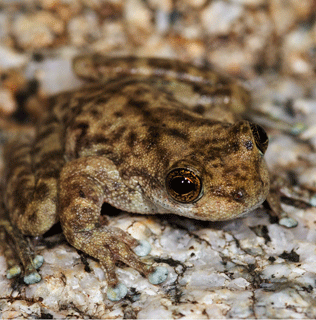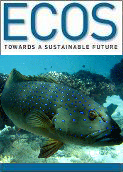
|
Published: 12 June 2012
Call for trade restrictions to contain frog-killing fungus
Scientists have called for tighter controls on international trade in amphibians and amphibian products to reduce the spread of chytrid fungus in Europe. The fungus has already killed large numbers of frogs in Australia, Spain and Central America.
Chytridiomycosis, a disease caused by the fungus Batrachochytrium dendrobatidis (Bd), is the focus of a major European Union risk assessment project, in which teams of scientists are investigating the genetics, physiological and behavioural effects, and geography of the disease.
The outcomes of this Risk Assessment of Chytridiomycosis to European Amphibian Biodiversity (RACE) project – due to end in 2012 – will include a set of recommendations for new animal-trade policy and legislation.
‘Two or three years ago we had about 200 Bd-infected amphibian species and now we have more than 500,’ says Mark Auliya, a herpetologist and trade-policy expert at the Helmholtz Centre for Environmental Research in Leipzig, Germany.
‘Bd is now distributed in more than 50 countries, on all continents that harbour amphibians. There are almost 7000 amphibian species, but less than 3 per cent are covered by the Convention on International Trade in Endangered Species of Wild Fauna and Flora (CITES).
‘The most striking result accomplished by the scientific community in the past year has been showing very clearly that global trade patterns have contributed to the spread of chytridiomycosis.
‘We also know that there are species that carry the disease but don't necessarily die from it, such as the North American bullfrog (Rana catesbeiana), an invasive species that can adapt well to different habitats.
‘We have hundreds of pet shops across Europe; we have hundreds of exotic-wildlife and reptile fairs; the frog-leg trade is another problem. But we have a lack of enforcement of existing trade regulations, and there are loopholes freely used by the consumers.
‘There must be something like an EU veterinary council imposing a single EU-wide hygiene and quarantine strategy to prevent spread of these diseases.
‘We’re not looking at an improved law system, we’re looking at a completely revised law, which encompasses all these issues: trade, conservation of amphibian species and disease control.
Bacteria on the surface of the skin are an important part of the amphibian immune system. Previous studies have found that some of these bacteria act against Bd.
Sara Bell, a PhD student at James Cook University (JCU) under the supervision of Professor Ross Alford, is investigating anti-Bd bacteria in frog species from Queensland’s Wet Tropics with different histories of disease. The aim is develop tools for reducing the catastrophic effects of disease outbreaks in previously unaffected areas.
Source: Nature News and JCU




